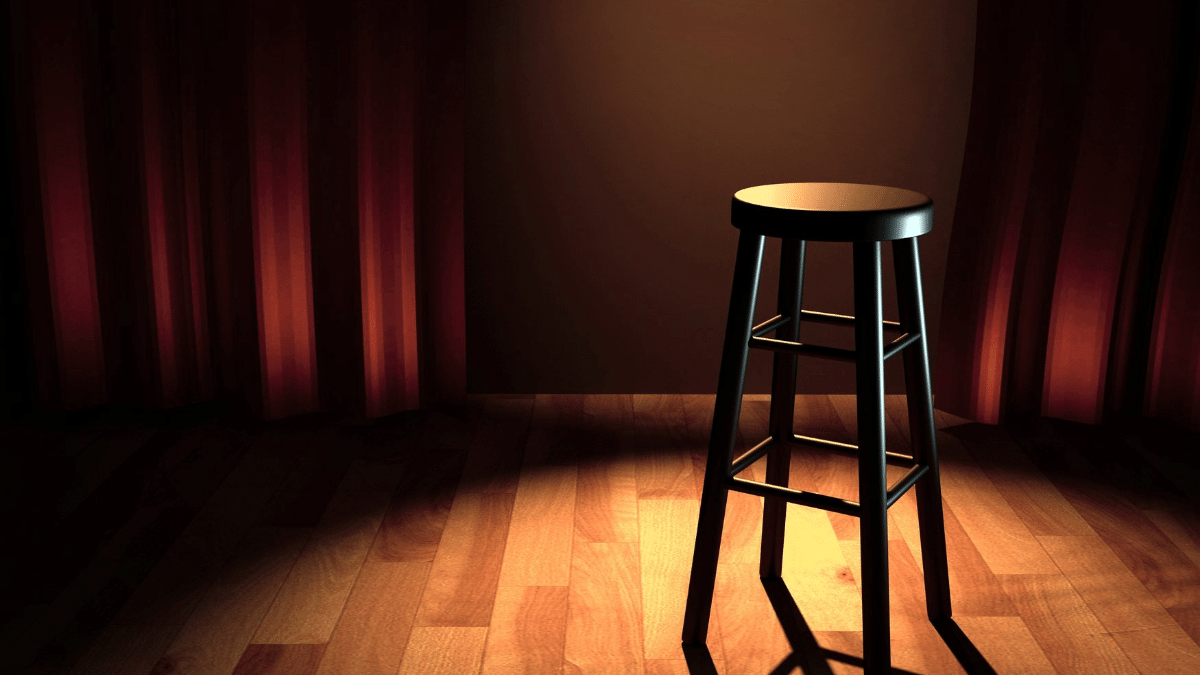When Joke Theft Becomes Serious

In September last year, UK comedian Kae Kurd took to the stage on Jonathan Ross’ Comedy Club to perform a short routine in front of a national audience. As part of that routine, Kurd told a joke about a smart refrigerator that was texting and annoying him while he was out with his friends.
That particular joke caught the attention of another UK comedian, Darius Davies, who felt that the joke was very similar to his work.
In particular, he found it odd that both men talked about getting a fridge with an ice maker as a status symbol and comparing a texting smart fridge with an annoying spouse or partner. Both also included the punchline, “Why can’t you be more like the kettle?”
According to Davies, this was backed up by other comedians telling him that Kurd was doing his routine. He claims to have reached out to Kurd previously, but Kurd insisted that the two routines were very different. Davies, who hadn’t seen the routine at that time, couldn’t do much.
However, after Kurd’s set on TV, Davies became very convinced that Kurd had copied his routine, perhaps unknowingly. He reached out to Kurd again, but was rebuked a second time.
This was when Kurd decided to go public, posting a now-removed video comparing the two routines. Though the issue became the subject of much discussion among the UK comedy scene, that was really all that happened to it.
That is, until this week. Now, a year later, Kurd has filed a libel lawsuit against Davies, accusing him of falsely accusing him of plagiarism. To that end, he’s even hired the law firm that represents the royal family.
However, both sides have said that they are trying to work toward an amicable resolution, which is still very likely. That said, what makes this case unusual isn’t the accusations of joke theft, but that it made it to the point of a lawsuit.
An Ancient Problem
Joke theft is nothing new and accusations of it likely go back as far as jokes themselves. However, in recent decades, largel with the rise of the internet, new attention has been turned to the phenomenon.
In 2008, law professors Dotan Oliar and Christopher Sprigman published a paper that looked at the norms comics had established with the issue.
Specifically, they found that, in the absence of strong legal protection, comedians turned to informal protection through social norms. That protection takes a multitude of forms including simple badmouthing, to refusing to work with an alleged plagiarism and even threats of physical violence.
That, in turn, makes Davies’ actions very much in line with what comedians do when confronted with such issues. First try to work things out directly and then attempt to shame the alleged plagiarist into submission. What is odd is Kurd’s response, to file a lawsuit.
However, this isn’t to say that lawsuits over joke theft never happen. In July 2015 Conan host Conan O’Brien was sued by a comedian Robert Alexander Kaesberg over the alleged use of five jokes lifted from his Twitter.
The case ultimately dragged on for nearly four years with a judge first dismissing some of the jokes but allowing the case to move forward. The case was eventually settled in May 2019.
However, the Kaesberg case points to yet another problem. According to O’Brien, after the lawsuit he had his staff monitor Kaesberg’s Twitter account and found at least 15 instances where it appeared Kaesberg had plagiarized from their show, not the other way around.
That’s because jokes, as simple as they seem, are actually very complicated, especially if you try to protect them.
Protecting the Unprotectable
One of the things that separates joke theft from most other kinds of plagiarism is that jokes, typically, only enjoy very thin copyright protection.
It’s known as the Idea/Expression Dichotomy. It basically means that one can not protect the idea of a joke, just the exact expression of it. Looking at the case above, Davies can protect the exact words he used to tell the joke, but not the idea of a refrigerator that texts you similar to a spouse.
This is why comedians and comics rarely take cases to court and, instead, rely on social norms for protection. Much of what makes a joke a joke can’t be protected through the law, but it can be protected if social norms dictate that it should be.
To make matters more complicated, people create similar jokes to others all the time. As the Conan case highlights, it’s entirely possible for two people miles apart to come up with similar ideas for a joke. This is especially true when dealing with shared current events or other common experiences. Throw in a little cryptomnesia, and it may even be possible to think that you told an original joke when you heard it elsewhere first.
As such, it can be difficult to know for certain if a joke is stolen or merely just an independent creation. That’s why most comedians look for a strong pattern of similarity before hurling accusations.
But then there’s the nature of jokes themselves. Jokes are something that are, generally, passed along and retold without attribution. They are heard, remembered, modified and retold countless numbers of time with attribution often being the first casualty.
As such, it can be difficult to prove or know where a joke started and that makes it difficult for anyone to claim a joke.
However, this normally isn’t a major problem outside the realm of professional comics. They spend their careers crafting and honing jokes and then make their living from them. Joke theft can literally harm their bottom line.
This was a sentiment echoed by Davies, who said that, now that his joke has been seen on TV, he can’t tell it readily on the circuit for fear of being seen as the plagiarist.
That fear is very real and very understandable. However, the truth is that we may never know if this is a case of true joke theft, or just a misunderstanding.
Bottom Line
When looking at the Kurd/Davies dispute, we have no way of knowing for certain what happened.
Is it possible Kurd plagiarized Davies? Yes. Is it possible Kurd heard the joke while they were playing the same clubs and forgot where he heard it? Also yes. Is it possible that Kurd came up with the same joke independently? Yes again.
The only person who may know the answer is Kurd himself, but it’s possible he doesn’t fully know either. Memories are tricky things, and it’s possible that the idea for the joke was planted by Davies without Kurd even realizing it.
However, this is a common problem in professional comedy. The lack of legal protection and the fuzziness of joke reuse make this a recurring theme. What makes this case exceptional is not the disagreement or the issues at play, but the lawsuit.
Hopefully, this can be resolved quickly and to everyone’s satisfaction, without too many hurt feelings along the way.
Want to Reuse or Republish this Content?
If you want to feature this article in your site, classroom or elsewhere, just let us know! We usually grant permission within 24 hours.
